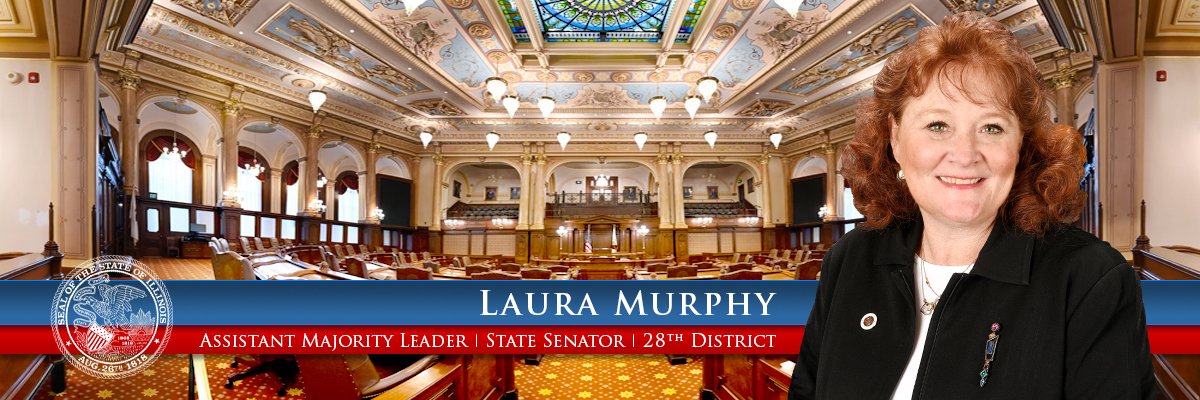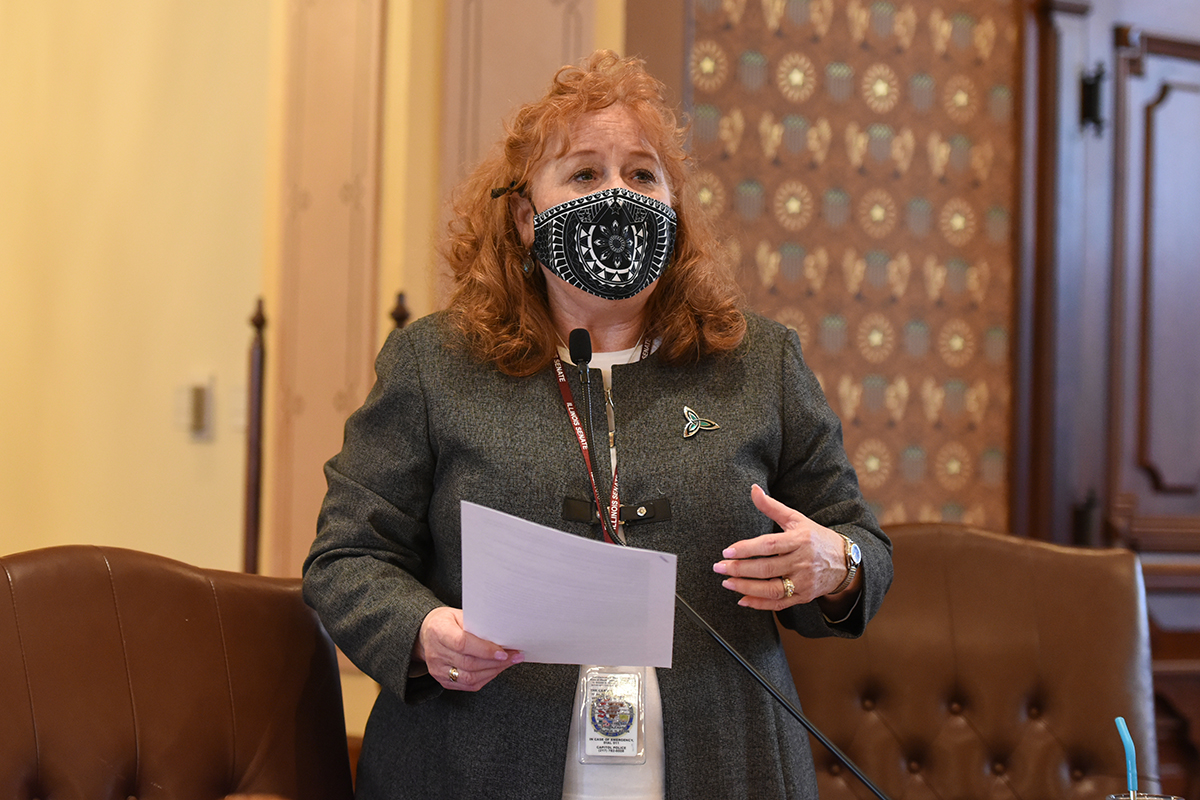Murphy-backed law puts the American transportation industry first
- Details
 SPRINGFIELD – To promote domestic manufacturing and put U.S. workers first, State Senator Laura Murphy (D-Des Plaines) sponsored a new law that will ensure Illinois prioritizes American contractors in the development of mass transit systems in the state.
SPRINGFIELD – To promote domestic manufacturing and put U.S. workers first, State Senator Laura Murphy (D-Des Plaines) sponsored a new law that will ensure Illinois prioritizes American contractors in the development of mass transit systems in the state.
“When we contract with foreign-based companies, we lose control over the business practices and standards involved in our transportation projects,” Murphy said. “As our economy recovers from the pandemic, it’s even more important that we support American manufacturers first.”
The new law prohibits Illinois from contracting for the development of any mass transit facility with a vendor that receives support from certain countries in which the government allocates goods and resources and determines prices.
In recent years, numerous major American cities have contracted with companies backed by non-market economy foreign governments, only to discover the companies have a history of questionable labor practices, including intellectual property theft and the use of child labor.
The law will strengthen the domestic rail supply industry and protect the economic and national security of U.S. rail infrastructure against foreign government interests.
“Buying American is the best way we can protect our transportation industry and support the nation’s long-term economic success,” Murphy said.
Senate Bill 640 was signed into law Monday and takes effect Jan. 1, 2022.
Older Illinoisans will have more flexible insurance options under Murphy law
- Details
 SPRINGFIELD – Older Illinoisans can shop for new Medicare supplemental plans without worrying about their health status or preexisting conditions under a law sponsored by State Senator Laura Murphy (D-Des Plaines).
SPRINGFIELD – Older Illinoisans can shop for new Medicare supplemental plans without worrying about their health status or preexisting conditions under a law sponsored by State Senator Laura Murphy (D-Des Plaines).
“Especially for those on fixed incomes, even a small rate change can cause significant financial stress,” Murphy said. “This law ensures our older neighbors have the flexibility they need to shop for a plan that fits their medical needs and their budget.”
The measure establishes an annual open enrollment period for each Medicare supplement policyholder between 65 and 75 years of age that begins on the policyholder’s birthday and lasts 45 days.
During this period, the policyholder can switch to a new supplemental policy with equal or lesser benefits under their same insurance provider. Insurance providers can’t deny, underwrite or charge new policyholders based on health status.
Murphy’s initiative is modeled after a law in California known as the Medigap “Birthday Rule,” which allows those with Medicare supplemental plans 60 days to switch to a plan of equal or lesser benefits at the time of their birthday. Other states designate guaranteed-issue periods during certain months or around the anniversary of the policyholder’s original policy issue date.
“A policyholder’s health status shouldn’t keep them from finding a more reasonably priced plan,” Murphy said. “Now, our older neighbors can depend on a dedicated window every year to make the switch.”
Senate Bill 147 takes effect Jan. 1, 2022.
Murphy law will help save students money on college textbooks
- Details
SPRINGFIELD – College students may soon see more affordable course materials under a law sponsored by State Senator Laura Murphy (D-Des Plaines) to create a task force dedicated to making textbooks and other course materials more affordable.
“I’m committed to making higher education more affordable for Illinois students—finding ways to lower textbook costs is an important part of that fight,” Murphy said. “I am excited for the task force to begin work and find ways to lift the financial burden on college students and their families.”
The legislation creates the Course Materials Equitable Access and Affordability Study Task Force, which will research ways to save students money on course materials, examine digital learning materials in response to the COVID-19 pandemic, and publish its findings online.
Using these findings, the task force will identify best practices for colleges and universities with an eye toward improving affordability, ensuring access to required course materials by the first day of class, and securing better outcomes for students—especially minority, low-income and first-generation students.
“When a student skips buying a textbook, they’re taking a risk with their education,” Murphy said. “Offering affordable course materials helps students stick to the syllabus and get the most out of their courses.”
Under House Bill 332, the task force must submit an initial report of its findings to the governor, the General Assembly, and the Illinois Student Assistance Commission no later than Oct. 1, 2022.
Murphy now accepting applications for small business tour series
- Details
 DES PLAINES – To support local businesses as they recover from the COVID-19 pandemic and provide an opportunity for their owners to share concerns about the state’s pandemic response, State Senator Laura Murphy (D-Des Plaines) is launching a small business tour series and invites entrepreneurs in the Northwest Suburbs to apply.
DES PLAINES – To support local businesses as they recover from the COVID-19 pandemic and provide an opportunity for their owners to share concerns about the state’s pandemic response, State Senator Laura Murphy (D-Des Plaines) is launching a small business tour series and invites entrepreneurs in the Northwest Suburbs to apply.
“Our small businesses have overcome unimaginable challenges over the past year and a half. Although we’re approaching recovery, many business owners are still in need of support,” Murphy said. “I look forward to touring our community’s businesses, hearing their stories and helping promote their work.”
Murphy hopes to visit a variety of businesses, including, but not limited to, retail shops, manufacturing businesses and businesses in the service industry – from salons to optometrists.
Business owners can submit their information at www.SenatorLauraMurphy.com/SmallBusinessTours to be considered for a tour. Once an application is received, a member of Murphy’s team will reach out with additional details.
Applications will be accepted through July 30. Tours will begin in August.
Those with questions can contact Murphy’s office at 847-718-1110 or www.SenatorLauraMurphy.com/contact-us.
More Articles …
Page 48 of 137









